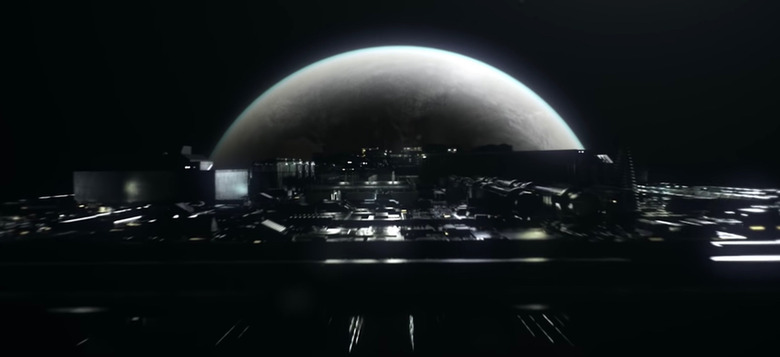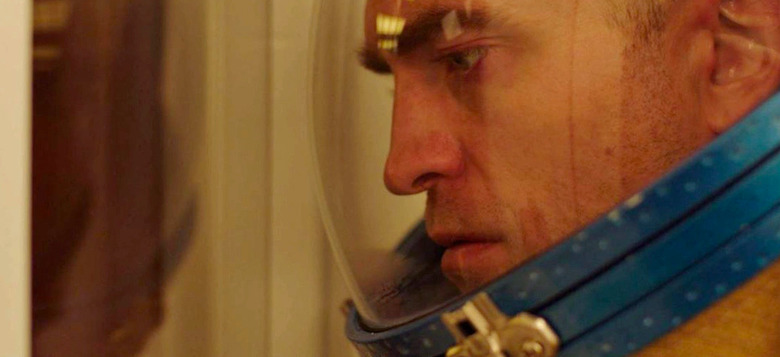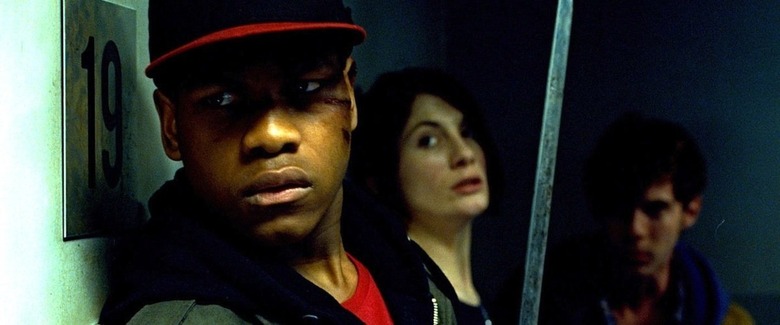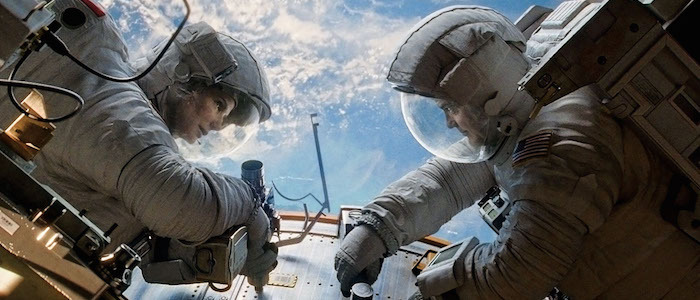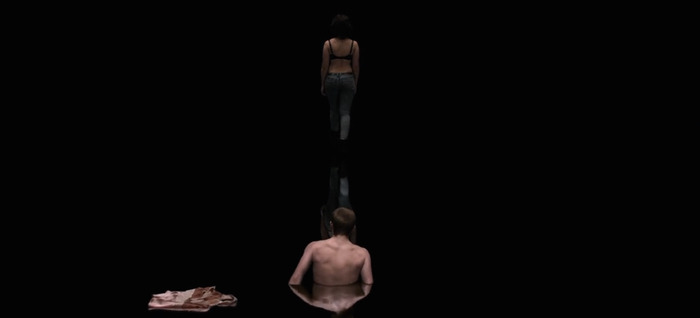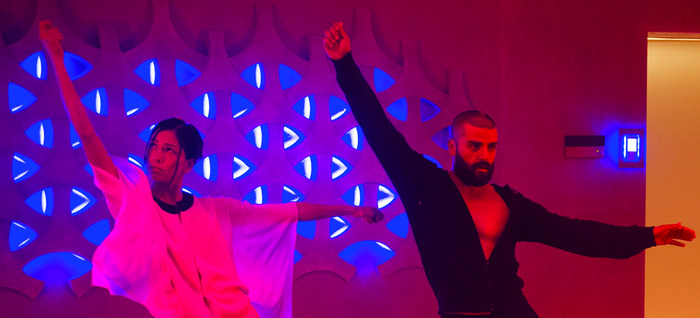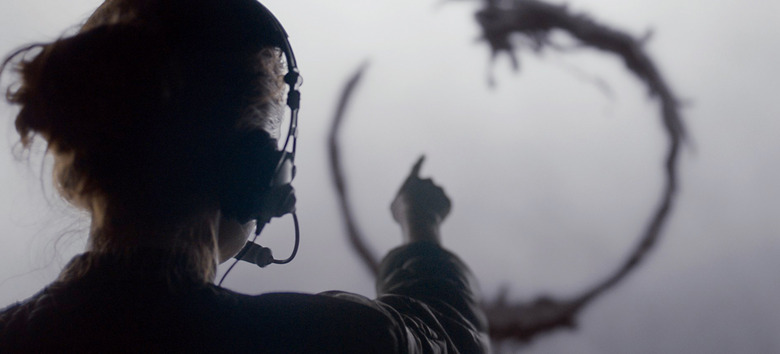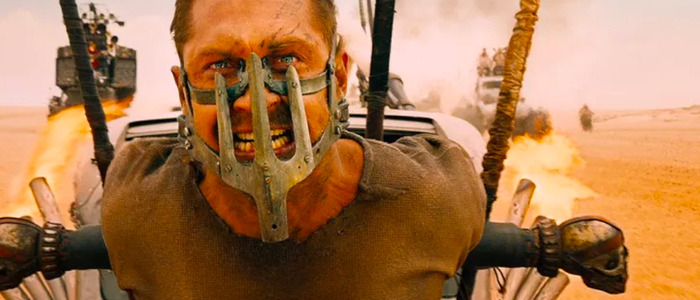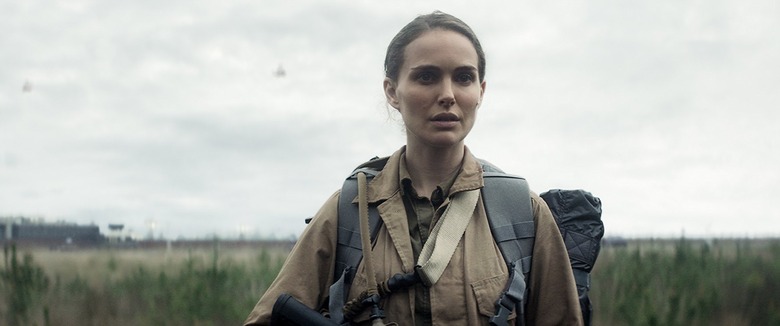The 10 Best Science Fiction Films Of The Decade
(This article is part of our Best of the Decade series.)In a surprising turn of events, stitching together a list of the greatest science fiction movies from the past ten years proved to be harder than I initially assessed. The reason, however, isn't because there weren't enough sci-fi standouts to conjure up a list, but rather, quite the opposite. Upon careful consideration, it turns out that there is a plethora of noteworthy under-seen gems, making the real challenge whittling down this list to a mere top ten.The One I Love is a modern day suburban play on cosmic occurrences that would make Rod Sterling proud. Evolution is a devastatingly beautiful fable about young boys in a remote French village maturing into sea creatures, a commentary on male puberty captured through The Strange Colour of Your Body's Tears DP Manuel Dacosse's meticulous eye. Justin Benson and Aaron Moorhead's The Endless plays like a trippy 70s esque folk cult film that sparks a debate about the never-ending cycle of toxic relationships. Yorgos Lanthimos' The Lobster is unlike any other movie I've ever seen. Grabbers is an uproarious and utterly unique comedy wherein the only accessible weapon against an alien invasion in a remote Irish town is lots and lots of booze. Bong Joon-ho's Snowpiercer and Okja are both exciting new additions to the genre, and Spike Jonze's Her serves not only as a satire on society's increasing dependence on cellular phones, but also, a look at relationships in general in our current climate and the ways in which we hide our emotions even from ourselves. Sadly, only ten spots were allotted for this piece, which is, to put it simply, very tough. That's why I've decided not to include any Star Wars or Marvel Cinematic Universe movies on this list. To me, science fiction is about heightening an already grounded and somewhat believable reality, whereas Disney's mega franchises are more of a complete break from reality. Both routes make for entertaining films, but for the sake of getting down to brass tacks, I've chosen to omit any movies from the house of mouse. Without further ado, here are my top ten sci-fi movies of the decade – a list which, rather unintentionally, has a lot of female-led films in tow. Chalk that up to what you will.
10. Aniara
Originally scheduled to transport colonists from what's left of the eviscerated Earth all the way to their new home on Mars, the ship Aniara veers off course when some unfortunately timed space debris forces the captain to toss out the rest of the structure's remaining fuel, turning their initial three-week passage into a never-ending trip deeper and deeper into the vastness of space. Based on an epic science fiction poem from the 1950s, the word 'Aniara' comes from ancient Greek, meaning 'sad' or 'despairing'. An apt title, this 2018 adaptation by directors Pella Kågerman and Hugo Lilja is a desperately bleak look at the deeply unsettling void of space, and the ways in which man is unprepared to deal with the elements in such uncharted territory. Little distractions in the forms of steady jobs, shopping malls, and a monolith –esque machine named Mima help passengers aboard the doomed flight maintain their sanity for the time being, but as the days turn into months, and the months turn into years, their behavior grows more erratic. Lewd conduct. Self-destruction. Religious cults. Unorthodox orgies. Vicious totalitarianism. The darkness discovered buried deep within the hearts of these increasingly soulless residents comes to outmatch any emptiness found outside these walls, rivals any terror hiding in the darkest corners of the infinite black.
9. Sorry to Bother You
Boots Riley's wild satire on capitalism burns itself into the brain by way of bold narrative and aesthetic choices. Played by a cool but clunky LaKeith Stanfield, Cassius Green struggles to make ends meet at his telemarketing job until the day when a veteran caller passes on a game-changer: use your white voice. Voiced literally by a white man – David Cross, to be exact – this ferociously original tumble down an increasingly strange commerce rabbit hole starts out with the heightened reality of a futuristic domain wherein modern day slavery is sold in the form of 'WorryFree' housing, and from there takes the plunge off the deep end into a world where CEOs turn their best laborers into horse-men all in the name of churning out a faster product. A brilliant, spirited look at where the future of science fiction can go, Riley's rebellious showstopper is both a commentary on the current state of gentrification in the Bay Area and a cautionary tale of what feverish hellscapes lie ahead with the ever shrinking middle class and covetous monsters at the top calling the shots.
8. High Life
America hadn't even landed on the moon yet when Stanley Kubrick unleashed 2001: A Space Odyssey onto the scene in 1968, thereby providing a glance into the future no crystal ball could conjure. In a similar manner, director Claire Denis switches from digital to 35mm scope at the crucial moment when her cabin fever crazed father and daughter welcome oblivion, casting an image of a blushing black hole onto the screen mere weeks before real life scientists presented a stunningly similar spectacle of the very same deep space phenomena. Prophets of their time, both Kubrick and Denis present patient, methodical and thought provoking pieces of art that are slightly too advanced for the era in which they reside. Featuring Robert Pattinson in some of his best work to date, this boundary pushing, hyper sexual ritualistic descent into delirium is one you need to watch in the dark.
7. Attack the Block
Back before he was saving the galaxy, John Boyega was busy saving the block. When the skies start raining Gollums down on the streets of Britain, a group of neighborhood hoodlums take it upon themselves to kill the space invaders using the best weapons they can find – a baseball bat, a water gun, a machete, and an ice skate. Heightened by a Steven Price score – the same composer as Cuarón's Gravity – Joe Cornish's debut film finds its strength in its endearingly pointed banter tossed back and forth between the boys, who grow more human with each alien interaction, and its extremely impressive low budget practical effects and unique character design. Aliens with glow in the dark teeth, no eyes, and rough black fur? A Quiet Place, eat your heart out.
6. Gravity
Anchored by Bullock's remarkable performance, Alfonso Cuarón's deeply personal descent into space exploration is the rare sci-fi film that actually finds the fear in the environment itself, rather than relying on human reaction to extended isolation. Through first person POV shots captured by Emmanuel Lubezki's talented eye and an increasingly paranoid score by Steven Price, we feel as though we, too, are trapped on a hellish journey of escalating delirium and unfathomable circumstances. Bullock's Ryan Stone is a brilliant medical engineer who becomes separated from her crew and must find her way back down to earth before she runs out of oxygen. An emotionally unavailable shell of a person, this grieving mother hasn't felt the rush of a destination since her daughter died in that freak playground accident. Since then, her autopilot nature barely registers her as any more alive than the little girl she lost. When her very first shuttle mission is interrupted by a rainstorm of space shrapnel, Ryan must make the decision between burying herself with her bereavement or buying time to bolster what's left of her damaged psyche back home, to rebuild, to be reborn.
5. Under the Skin
It's hard to think of an image from this decade as aggressively influential as that of Scarlet Johansson, peeling off her clothes, seductively skulking away from the camera into a sea of black while a naïve naked man follows foolishly behind her, sinking into the floor, up to his elbows in darkness. Jonathan Glazer's 2013 chef-d'oeuvre may not have made a splash at the box office upon its initial release, but over the years, this tragically underrated experimental drama has found its own little cult following, sheepishly seeping into facets of the mainstream. Whether it be the production design for Eleven's sensory deprived 'void' scenes in Stranger Things, or the sampled – and let's be honest, sometimes just plain ripped off in some projects – Mica Levi score in programs like American Horror Story, this ScarJo led indie darling isn't just a brilliant piece of filmmaking, it undeniably changed the look of science fiction for years to come. The mysterious black room where victims are literally sucked dry. The fluctuating gender dynamics demonstrated by way of prey turned predator. The ever-inquisitive screeching strings that sonically heighten each hungry glance of a woman hunting down vulnerable men. The wish fulfillment fantasy scenario in which a woman single handedly disposes of dudes who assume she owes them something by merely existing (hello Promising Young Woman). There's not a single piece of this movie that hasn't left a fingerprint on the state of cinema as we know it today.
4. Ex Machina
A simmering Turing Test stretched over the course of a week's time boils over into a dangerous game. In the midst of trying to pin down whether or not Alicia Vikander's A.I. Ava passes for human, Domhnall Gleeson's fidgety coder Caleb begins to wonder if he is the one being tested. Initially elated at the idea of spending some private time with boy genius Nathan (Oscar Isaac), a man Caleb likens to Mozart, the prodigy arrives at the CEO's elusive mountain property eager to be a part of whatever the mastermind is currently working on, unaware that his idol is merely building pretty prisoners for his castle. Through increasingly intense sessions between Caleb and Ava, Alex Garland's directorial debut unabashedly explores the questions that have long plagued humanity – Does having consciousness make someone human? Can cognizance exist without interaction? Is it morally sound to create life that faintly exists like dust in the wind, ultimately deemed expendable? A surprisingly feminist tale, bolstered by a taut, multi-layered performance by Vikander and an unforgettable dance sequence by Isaac and Sonoya Mizuno, this hidden gem uses what happens to Vikander's machine girl as an origin story – the question is, is she the hero or the villain?
3. Arrival
Early in Denis Villeneuve's dense and sharply powerful drama, Jeremy Renner's uptight mathematician recites a passage – to the face of the woman woman who wrote it, no less, Amy Adams' Dr. Louise Banks – with an air of distaste, haphazardly summing up the entire all-timer in one fell swoop: "Language is the foundation of civilization. It is the glue that holds a people together. It is the first weapon drawn in a conflict". When twelve unidentified flying shells inexplicably land in various locations across the globe, linguist Banks is brought on board the zero gravity alien ship by the U.S. military in an attempt to communicate with the coined "Heptapods", and seek out the purpose for their arrival. Banks has trouble calling the giant floating amputated hands with elongated fingers by their proper categorization – aliens – and it's easy to understand why. This is a grounded cathartic experience in the guise of a star studded flashy Hollywood extraterrestrial movie. A master class in world building, this 2016 stunner is director Villeneuve at the top of his game, using the grand mechanism of investigating creatures from outer space as a vehicle to deliver a very personal sentiment about unconditional love and the power of empathy in the form of language.
2. Mad Max: Fury Road
Chrome teeth polished with silver spray. A non-stop exasperated sprint to Valhalla. Primal screams begging to be witnessed fogging the desert air. A crusty totalitarian dictator more machine than man. A literal human blood bag. Flame throwing guitars plucked by dystopian madmen. Spike covered cars setting off crimson colored fireworks into eternal overcast. Amputated warrior goddesses refusing to be things. A man reduced to one instinct: survive. This is Max's world, and its fire and blood. In an era when big blockbusters were boring audiences to tears with over-exploited pixels and computer generated graphics galore, seventy-year-old legendary filmmaker George Miller stomped onto the scene with a radical return to his Mad Max franchise and showed all the kids how its done. Set in an era where water wars control the narrative, Miller's latest is not only a triumph of in camera practical effects, but also a trailblazing precedent in passing the torch to the one armed woman who has better aim than the arrogant able bodied male prisoner she's reluctantly agreed to allow as a passenger into the gates of hell.
1. Annihilation
Midway through Alex Garland's mystifying sophomore feature, there's a scene in which a mutated bear with a peeled back human skull screams in the face of a gagged and bound biologist, wickedly shouting with the voice of the woman that the beast just killed. In the wrong hands, a moment like this could veer dangerously into schlocky B-movie territory, but under Garland's care, it feels both staggering and specific. An impossible reality trapped inside of a nightmarish echo. Director Garland loosely adapts Jeff Vandermeer's novel of the same name, the film follows Natalie Portman's guilt-ridden Lena as she embarks on a suicide mission into the shimmer, a whimsical alien enclosure on earth from which no one ever returns. When her missing military husband returns home from his covert assignment for the first time in a year with multiple organ failure, Lena is so relieved and plagued by her infidelities that she takes it upon herself to make the trek through the strange environment that claimed her lover, hoping to find some sort of antidote to restore the man she once knew. The deeper Lena ventures into the shimmer, the more of a trip inward she embraces both physically and metaphorically. Whether or not she can escape the eerie prism prison in the end is yet to be seen, but like a cancer, the experience of her journey will inevitably leave Lena irrevocably changed. Garland's study of how hard it is to be a human is a stunning execution of cinema on both a narrative and visual level, boasting some truly revolutionary visual effects, all while maintaining a universal theme of humanity's tendency towards self-destruction in its many iterations.

